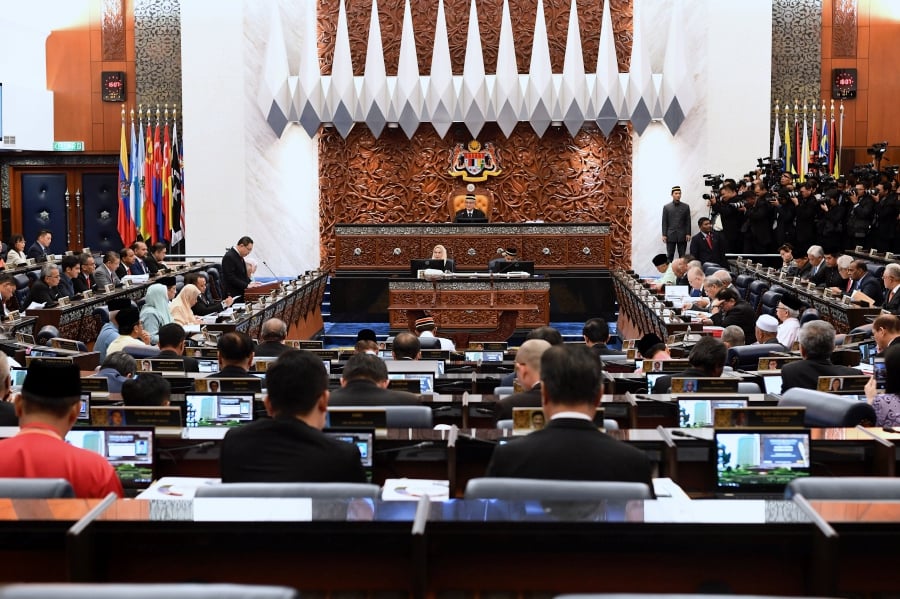Steven Sim Chee Keong 沈志强
Sim succeeds Chow as state party chairman after polls at ordinary convention
GEORGE TOWN: A wind heralding change has blown through the halls of power in Penang.
The collective force of the 1,500-odd delegates of Penang DAP who cast their votes yesterday indicated a shift away from the powerful “Lim family” in the party.
Not all candidates known to be aligned with party chairman Lim Guan Eng scored enough votes to win a coveted seat in the state party committee – a sign that there are complex workings in the party that outsiders cannot measure.
Human Resources Minister Steven Sim became the new Penang DAP chairman from now until 2027 after scoring the second highest number of votes from state party delegates (1,237 votes).
Sim was asked to comment on the fact that assuming the post meant he could be the chief minister designate.
The Bukit Mertajam MP picked the middle ground: “We focus on the working on the ground first, make sure we win the next election and establish the government together.
“All that can be discussed later; we focus on working on the ground. Thank you,” he told the media in a minute-long press conference.
Penang DAP had its ordinary convention yesterday, requiring 1,500-odd delegates to vote in 15 out of 31 nominees to be in the state liaison committee.
After their votes were tallied and the 15 members were determined, the 15 then enter closed doors to thrash out who would be the chairman, deputy, secretary, treasurer and other office-bearers.
When the doors were opened, reporters got the news they had expected: Sim would take over from Penang Chief Minister Chow Kon Yeow as the new chairman.
Sim’s deputy is now Ramkarpal Singh, a son of the late party stalwart Datuk Seri Karpal Singh, who actually gained the most number of votes from Penang DAP delegates (1,247 votes).
Guan Eng’s sister Hui Ying, who is Deputy Finance Minister and Tanjong MP, retained her post as Penang DAP secretary. But she only garnered 827 votes.
Komtar assemblyman Teh Lai Heng, who used to be Chow’s political secretary, climbed up and became state party treasurer.The combination of Sim and Hui Ying as the chairman and secretary had earlier received open endorsement from DAP secretary-general Anthony Loke.
Among biggest casualties were Deputy Chief Minister II Jagdeep Singh Deo and state Tourism and Creative Economy Committee chairman Wong Hon Wai.
Other state assemblymen who did not make the cut were Heng Lee Lee (Berapit), Joseph Ng (Air Itam), K. Kumaran (Bagan Dalam) and Ong Ah Teong (Batu Lanchang).
These were among personalities believed to be attentive to Guan Eng’s opinions.
Guan Eng, who was Penang chief minister from 2008 to 2018, had never been the Penang DAP chairman. But a convention exists in that the “chief minister designate” is usually the chairman of the leading party in a given state.
State exco member Zairil Khir Johari (fourth, 1,166 votes) and Datuk Yeoh Soon Hin (third, 1,225), a former state exco member, were appointed as the state party vice-chairmen.
State party assistant secretary post went to H’ng Mooi Lye, the Penang local government executive councillor.
The assistant treasurer post will be held by Lay Hock Peng.
The organising secretary is now Phee Boon Chee, the younger brother of Penang DAP veteran Datuk Seri Phee Boon Poh, while the assistant organising secretary post will be held by both Lee Wei Seang and Lim Siew Khim.
The state DAP publicity secretary is now Joshua Woo and the assistant publicity secretary is Datuk Soon Lip Chee.
The director of political education is Daniel Gooi, who is the Penang state exco member for youth, sports and health.
The six committee members are Datuk Seri S. Sundarajoo, RSN Rayer, Phee Syn Tze, Ooi Yong Woi, Teh Chuann Yien and Foo Yu Keong





















